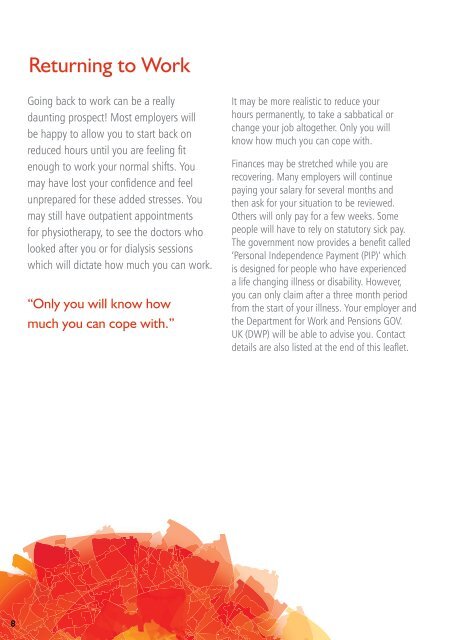SEPSIS Survivors Information
Sepsis-Survivors
Sepsis-Survivors
You also want an ePaper? Increase the reach of your titles
YUMPU automatically turns print PDFs into web optimized ePapers that Google loves.
Returning to Work<br />
Going back to work can be a really<br />
daunting prospect! Most employers will<br />
be happy to allow you to start back on<br />
reduced hours until you are feeling fit<br />
enough to work your normal shifts. You<br />
may have lost your confidence and feel<br />
unprepared for these added stresses. You<br />
may still have outpatient appointments<br />
for physiotherapy, to see the doctors who<br />
looked after you or for dialysis sessions<br />
which will dictate how much you can work.<br />
“Only you will know how<br />
much you can cope with.”<br />
It may be more realistic to reduce your<br />
hours permanently, to take a sabbatical or<br />
change your job altogether. Only you will<br />
know how much you can cope with.<br />
Finances may be stretched while you are<br />
recovering. Many employers will continue<br />
paying your salary for several months and<br />
then ask for your situation to be reviewed.<br />
Others will only pay for a few weeks. Some<br />
people will have to rely on statutory sick pay.<br />
The government now provides a benefit called<br />
‘Personal Independence Payment (PIP)’ which<br />
is designed for people who have experienced<br />
a life changing illness or disability. However,<br />
you can only claim after a three month period<br />
from the start of your illness. Your employer and<br />
the Department for Work and Pensions GOV.<br />
UK (DWP) will be able to advise you. Contact<br />
details are also listed at the end of this leaflet.<br />
8


